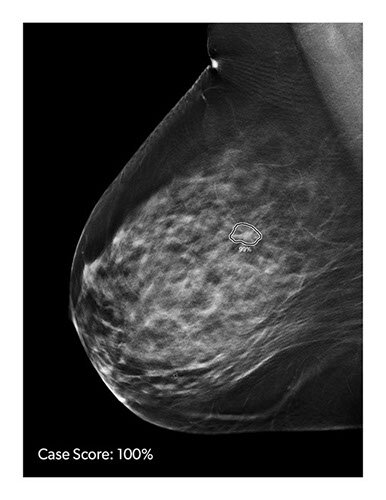Novel Blood Test Could Reduce Need for PET Imaging of Patients with Alzheimer’s
|
By MedImaging International staff writers Posted on 05 Apr 2024 |

Alzheimer's disease (AD), a condition marked by cognitive decline and the presence of beta-amyloid (Aβ) plaques and neurofibrillary tangles in the brain, poses diagnostic challenges. Amyloid positron emission tomography (PET) imaging is a well-established diagnostic aid for AD but comes with high costs, invasiveness, and the need for specialist equipment, unlike blood tests. Now, new study findings have revealed that a novel amyloid blood test could reduce reliance on PET imaging for some patients experiencing mild cognitive issues to enable therapeutic focus on non-AD causes, thus expanding access to quality evaluation and reducing healthcare costs.
In what is considered one of the largest published studies, researchers evaluated the efficacy of amyloid blood testing in diagnosing AD. The study utilized 6,192 anonymized lab results from patients who were administered Quest Diagnostics’ (Secaucus, NJ, USA) AD-Detect Beta-amyloid ratio test AΒ42/40. This test measures the ratio of amyloid beta 42 and 40 proteins (Aβ42/40) found in the brain and also circulating in the bloodstream. The clinical accuracy of the Quest test was verified against 250 samples from individuals who also had amyloid PET scans and demographic data. Additionally, the study examined the blood test's performance across various interpretative ranges based on different cutoffs, or amyloid levels in the blood.
Findings from the study suggest that the Quest test, which analyzes amyloid protein levels using highly sensitive mass spectrometry, could effectively indicate when AD is unlikely to be the cause of a patient's mild cognitive impairment. The analysis showed that up to 99% of patients who tested negative for amyloid proteins in the brain via PET imaging would likely also test negative using the Quest blood test. This predictive capability could lead to a 40% reduction in the need for PET brain scans, offering significant potential healthcare cost savings for these patients.
"These findings show Aβ42/40 testing is very helpful in identifying amyloid pathology in populations with a high prevalence of AD, particularly older individuals," said Michael Racke, MD, Medical Director of Neurology at Quest Diagnostics. "We believe the comparatively low specificity reflects the limits of PET scans to identify the earliest stages of AD pathology and that many of these patients will progress to be PET-positive as the disease worsens."
Latest General/Advanced Imaging News
- New AI Method Captures Uncertainty in Medical Images
- CT Coronary Angiography Reduces Need for Invasive Tests to Diagnose Coronary Artery Disease
- CT-Based Deep Learning Algorithm Accurately Differentiates Benign From Malignant Vertebral Fractures
- Minimally Invasive Procedure Could Help Patients Avoid Thyroid Surgery
- Self-Driving Mobile C-Arm Reduces Imaging Time during Surgery
- AR Application Turns Medical Scans Into Holograms for Assistance in Surgical Planning
- Imaging Technology Provides Ground-Breaking New Approach for Diagnosing and Treating Bowel Cancer
- CT Coronary Calcium Scoring Predicts Heart Attacks and Strokes
- AI Model Detects 90% of Lymphatic Cancer Cases from PET and CT Images
- Breakthrough Technology Revolutionizes Breast Imaging
- State-Of-The-Art System Enhances Accuracy of Image-Guided Diagnostic and Interventional Procedures
- Catheter-Based Device with New Cardiovascular Imaging Approach Offers Unprecedented View of Dangerous Plaques
- AI Model Draws Maps to Accurately Identify Tumors and Diseases in Medical Images
- AI-Enabled CT System Provides More Accurate and Reliable Imaging Results
- Routine Chest CT Exams Can Identify Patients at Risk for Cardiovascular Disease
- AR Preoperative Surgical Planning Software Makes Surgery Safer and More Efficient

Channels
Radiography
view channel
Novel Breast Imaging System Proves As Effective As Mammography
Breast cancer remains the most frequently diagnosed cancer among women. It is projected that one in eight women will be diagnosed with breast cancer during her lifetime, and one in 42 women who turn 50... Read more
AI Assistance Improves Breast-Cancer Screening by Reducing False Positives
Radiologists typically detect one case of cancer for every 200 mammograms reviewed. However, these evaluations often result in false positives, leading to unnecessary patient recalls for additional testing,... Read moreMRI
view channel
PET/MRI Improves Diagnostic Accuracy for Prostate Cancer Patients
The Prostate Imaging Reporting and Data System (PI-RADS) is a five-point scale to assess potential prostate cancer in MR images. PI-RADS category 3 which offers an unclear suggestion of clinically significant... Read more
Next Generation MR-Guided Focused Ultrasound Ushers In Future of Incisionless Neurosurgery
Essential tremor, often called familial, idiopathic, or benign tremor, leads to uncontrollable shaking that significantly affects a person’s life. When traditional medications do not alleviate symptoms,... Read more
Two-Part MRI Scan Detects Prostate Cancer More Quickly without Compromising Diagnostic Quality
Prostate cancer ranks as the most prevalent cancer among men. Over the last decade, the introduction of MRI scans has significantly transformed the diagnosis process, marking the most substantial advancement... Read moreUltrasound
view channel
Deep Learning Advances Super-Resolution Ultrasound Imaging
Ultrasound localization microscopy (ULM) is an advanced imaging technique that offers high-resolution visualization of microvascular structures. It employs microbubbles, FDA-approved contrast agents, injected... Read more
Novel Ultrasound-Launched Targeted Nanoparticle Eliminates Biofilm and Bacterial Infection
Biofilms, formed by bacteria aggregating into dense communities for protection against harsh environmental conditions, are a significant contributor to various infectious diseases. Biofilms frequently... Read moreNuclear Medicine
view channel
New SPECT/CT Technique Could Change Imaging Practices and Increase Patient Access
The development of lead-212 (212Pb)-PSMA–based targeted alpha therapy (TAT) is garnering significant interest in treating patients with metastatic castration-resistant prostate cancer. The imaging of 212Pb,... Read moreNew Radiotheranostic System Detects and Treats Ovarian Cancer Noninvasively
Ovarian cancer is the most lethal gynecological cancer, with less than a 30% five-year survival rate for those diagnosed in late stages. Despite surgery and platinum-based chemotherapy being the standard... Read more
AI System Automatically and Reliably Detects Cardiac Amyloidosis Using Scintigraphy Imaging
Cardiac amyloidosis, a condition characterized by the buildup of abnormal protein deposits (amyloids) in the heart muscle, severely affects heart function and can lead to heart failure or death without... Read moreImaging IT
view channel
New Google Cloud Medical Imaging Suite Makes Imaging Healthcare Data More Accessible
Medical imaging is a critical tool used to diagnose patients, and there are billions of medical images scanned globally each year. Imaging data accounts for about 90% of all healthcare data1 and, until... Read more
Global AI in Medical Diagnostics Market to Be Driven by Demand for Image Recognition in Radiology
The global artificial intelligence (AI) in medical diagnostics market is expanding with early disease detection being one of its key applications and image recognition becoming a compelling consumer proposition... Read moreIndustry News
view channel
Bayer and Google Partner on New AI Product for Radiologists
Medical imaging data comprises around 90% of all healthcare data, and it is a highly complex and rich clinical data modality and serves as a vital tool for diagnosing patients. Each year, billions of medical... Read more





















